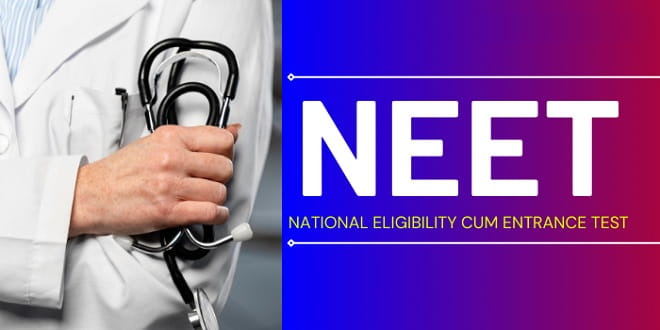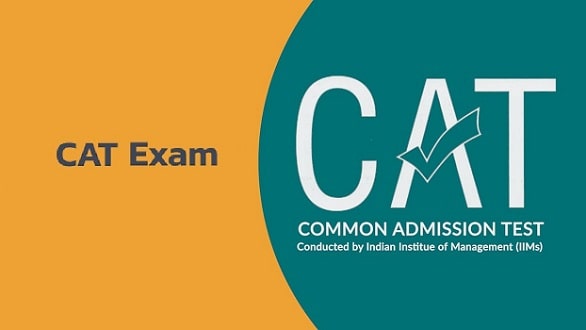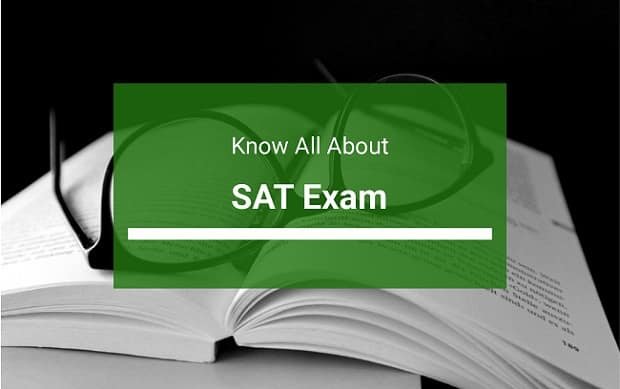IAS exam, also known as Indian Administrative Service Exam, is one of the most challenging exams in India. This was earlier known as Imperial Service Exam, and it has been conducted by UPSC in India. The exam is conducted throughout the country, and it helps the administration choose the IAS officers who help in the administration of districts and states. Many candidates appear in IAS Exam, and you might already be aware that this exam was founded in 1858. After the inception of the constitution, this was renamed IAS. IAS is considered to be the most prestigious services in India. If you are interested in the IAS Exam, you will be happy to know that we have compiled all the information for you in this article. Go ahead and check out the details now.
What is IAS Exam in India?
You might have seen the popular web series Aspirants, which was about the struggle of becoming an IAS. We are sure that the series would have inspired you to pursue the IAS as a career option. The position commands respect, and you are working for the people. To become an IAS, you need to appear in the Civil Services Examination conducted by UPSC. Every year, over 8 lakh students appear in the examination, and only a few can make it to the top.
We will talk about the exam pattern in the later section, but you have to appear in the preliminary exam and the main exam. After that, you have to go through the interview to become the IAS. In the usual cases, the prelims are held in June, and the final interviews are scheduled in April. The list of selected candidates is published in May, so the selection process is a year long, provided that you are able to clear all the rounds.

The CSE exam is an offline exam, and you have to appear in the prelims and mains. There are close to 720 vacancies every year. We are going to talk about the rest of the details in the section below.
Eligibility Criteria for IAS Exam
In this section, we have listed the eligibility criteria for the IAS exam. Go ahead and check out the details below.
- Age Criteria
- You need to be a minimum of 21 years old to appear for the CSE Exam. In addition to this, your maximum age should not be over 32 years.
- There are some relaxations (upper age limit) for certain categories, ranging from 3 years to 10 years.
- You get a three year relaxation if you are serving in Defense Sector, and the same is applicable for OBC candidates.
- The government give a five-year relaxation to the SC and ST candidates. You also get this relaxation if you have completed five years of military service and if you are an ex-serviceman now. The same relaxation is extended for ECO and SSCO.
- Lastly, a ten-year exception is for the students who are from the physically disabled category. (Deaf, Mute, Visually Challenged, Handicapped)
- Education Qualification
- As a candidate, you should have a bachelor degree from a recognised college or university.
- If you are in the final year of the course and yet to appear for the final exams, you are still eligible to appear for the IAS exam. You would need to produce the proof of completing the graduation before the mains.
- If you have any professional or technical qualification, you will also be eligible to apply for the IAS Exam.
- If you were pursuing MBBS but have not completed the internship yet, you can still appear in the IAS exam. In such a case, you would need to produce a certificate from your institute, which acts as a provisional pass certificate.
- Nationality
- The candidate must be a citizen of India, Nepal or Bhutan.
- If the applicant is a Tibetan Refugee, he should have been settled in India before 1962.
- The applicant should have an Indian Origin, who has migrated back from Zambia, Zaire, Vietnam, Uganda, Tanzania, Sri Lanka, Pakistan, Myanmar, Malawi, Kenya or Ethiopia.
IAS Exam Syllabus &Pattern
In this section, we have listed the syllabus and pattern of the IAS Exam. Check out the details below.
- Preliminary Exam
This is the first level exam, and it has two papers of 200 marks each. Each exam has a duration of 2 hours, and it has 33.3% negative marking as well for each wrong answer. The first exam has 100 MCQs, and they are on the current events, India’s history, geography, politics, socio-economic development and general issues. The second preliminary exam has 80 questions, and it has questions based on comprehension passage, language proficiency, logical reasoning, problem-solving, decision tree, mental ability, data interpretation and other numerical.
- Main Exam
The main exam is very important, and each of the exams is divided into two categories. The first category is the qualifying exam, and the second one is for merit. The Part A and Part B Qualifying exams are of 300 marks each. For the merit, there are eight papers in total, and each one is of 250 marks. The list of these subjects is mentioned below.
Paper I – Essay Type Question
Paper-II – Indian Heritage & Culture, Geography & History
Paper III – Constitution, Politics, International Relation, Governance
Paper IV – Economic Development, Disaster Management, Security, Bio-Diversity & Technology
Paper V – Integrity, Ethics & Aptitude
Paper VI – Option Subject
Paper VII – Option Subject
*Option Subjects are – Agriculture, Animal Husbandry and Veterinary Science, Anthropology, Botany, Chemistry, Civil Engineering, Commerce and Accountancy, Economics, Electrical Engineering, Geography, Geology, History, Law, Literature, Management, Mathematics, Mechanical Engineering, Medical Science, Philosophy, Physics, Political Science and International Relations, Psychology, Public Administration, Sociology, Statistics, Zoology
- Personality Test
If you clear the mains exam, then you get a chance to appear on the personality test. The total weightage of the personality test is 275 marks. After the interview, cumulative marks are calculated out of 2025, and you are offered a position based on the merit list.
UPSC issued some special instructions for the IAS Exam in 2020. This includes the mandatory requirement for wearing a face mask all the time. The students were also required to carry the hand sanitiser, and they were required to follow the social distancing norms. It is most likely that UPSC will replicate these instructions in the 2021 examination as well.
Attempt for IAS Exam
IAS exam restricts you to a certain number of attempts. This has been a rule since 1984. The present limit of attempts is listed in the points below. You should note that these limits are in addition to the age restrictions.
- General Candidates have a limit of 6 attempts.
- There are nine attempts allowed to OBC & handicapped students.
- The candidates from SC and ST have no limit.
IAS Exam Dates for 2021
As mentioned earlier, the exam is usually conducted in June, but due to the ongoing pandemic, the UPSC has decided to postpone the exam till October. The planned date for Prelims was 27 June 2021, but the newly updated dates as per the notification are 10 October 2021. The notification is available on the UPSC website, and you can review the same. Please monitor it closely to track the changes to the schedule and other important announcements.
The exams for 2020 were also held in October, but some unfortunate students had to miss the exam because of the covid-19 related emergency. The government also notified that the students who have missed the examination due to covid-19 in October 2020 would not be given a reattempt.
Fee for IAS Exam?
The fee for the IAS exam is Rs 100, and You can pay it via online or offline modes. This is the registration fee, and there is no other expense associated with the IAS exam.
The Registration Process of IAS Exam
You need to register for the CSE Exam on the UPSC website to appear in it. The application procedure is online, and the admit card for the Prelims is also issued via the online process. If you clear the Prelims, you will get the admit card for the Mains and Interview based on the result. We have listed the process to apply for CSE Exam, and you can check out the steps below.
- You need to start by visiting the official website of the UPSC. The link to the website is https://www.upsc.gov.in/.
- At the bottom of the page, you will see an option for Apply Now. Click on the button, and you will be redirected to a new page.
- From the options available, select Online Application for Various Examinations and then select Civil Services Examination.
- Click on Part I registration and start filling the form. You would have to fill in the personal details, address and educational qualification details here.
- After the form has been filled, you need to go ahead and pay the fee of Rs 100. You can deposit the fee using online banking, and you also have an option to deposit the fee via challan.
- After you have deposited the fee, you will get to choose the preference in terms of the exam centre. In the last step, you need to upload your photograph, signature and ID card. You would also need to sign the declaration.
- You can now take a printout of the form, or you can save it on your computer for future reference.

Rahul Kumar is a passionate educator, writer, and subject matter expert in the field of education and professional development. As an author on CoursesXpert, Rahul Kumar’s articles cover a wide range of topics, from various courses, educational and career guidance.



